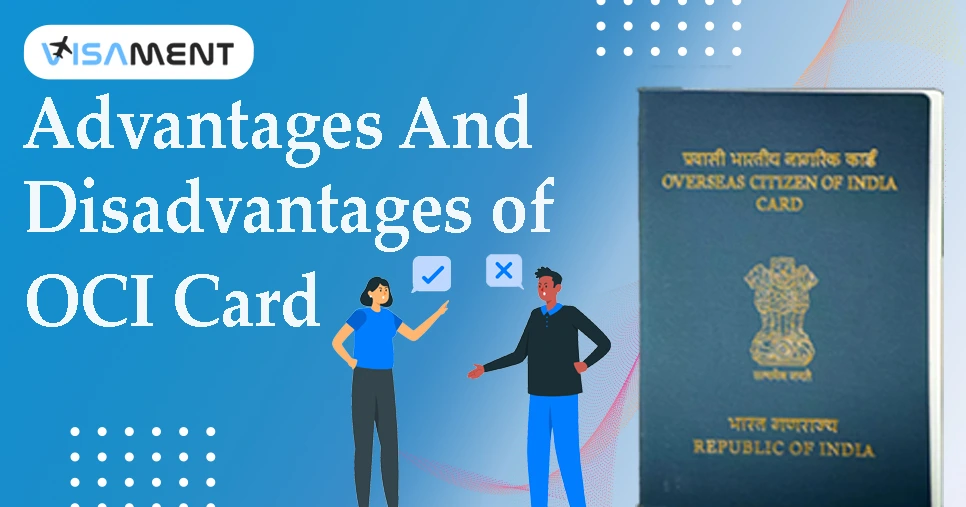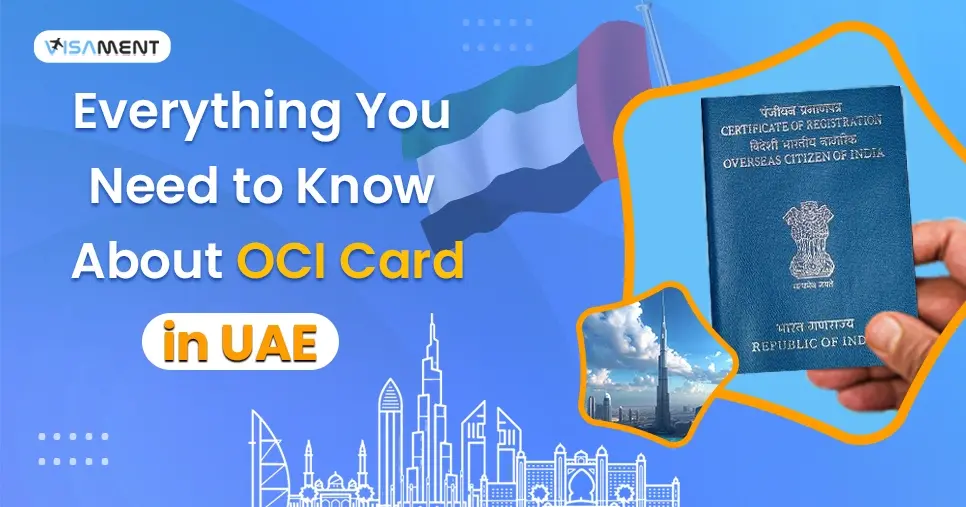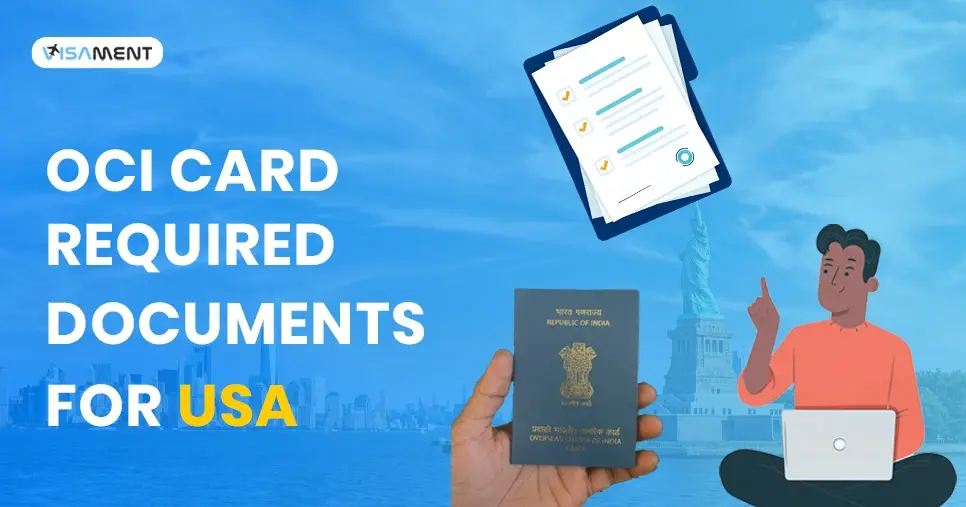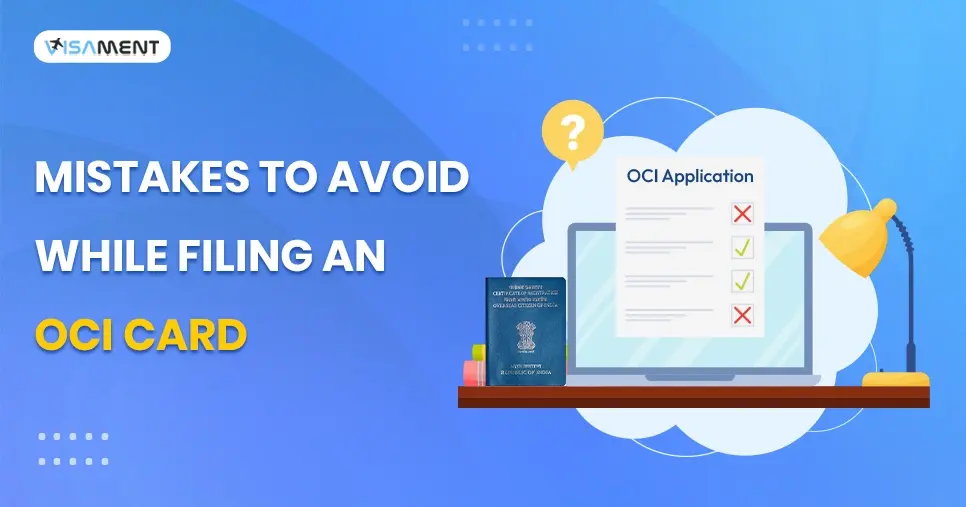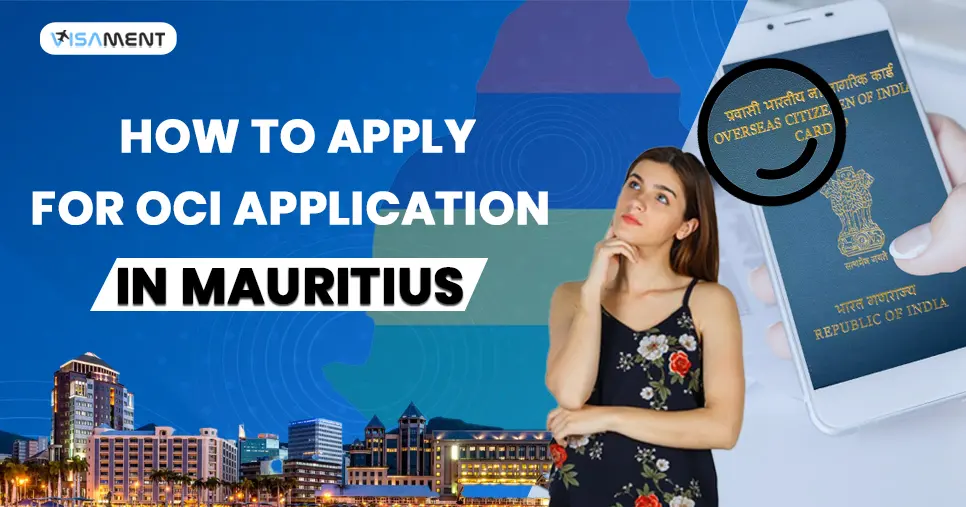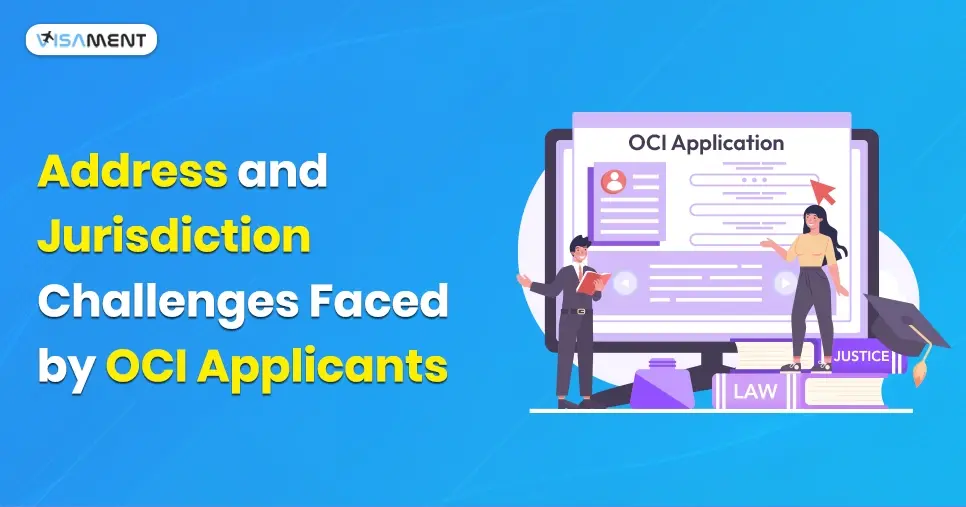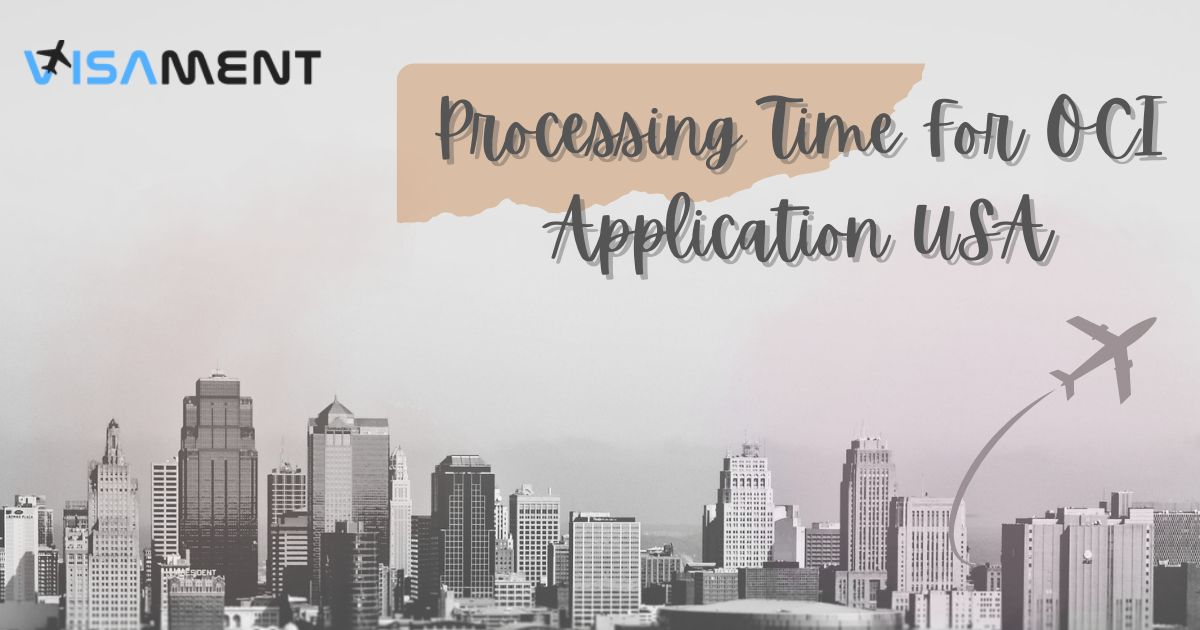The OCI card was introduced by the Indian government in 2005 due to an amendment to the Citizenship Act. It was introduced to give citizens of India residing abroad the same rights as resident citizens while allowing them to maintain citizenship in their home country.
As we all know, everything has pros and cons. In this blog, we will learn about the advantages and disadvantages of OCI Cards. But before jumping to the benefits and limitations of OCI cards, let's learn more about what an OCI card is.
What Is an OCI Card?
OCI stands for Overseas Citizen of India. It refers to a person who is a citizen of another country but has Indian origin. It is a lifelong visa that allows people of Indian origin to travel freely across India. Furthermore, they were Indian citizens on or after the 26th of January 1950.
An OCI cardholder can live, work, and avail of many rights and privileges similar to an Indian citizen. The OCI program was introduced as a medium to strengthen the bond between India and its overseas community. The OCI status is beneficial for those who wish to maintain their cultural ties with India while enjoying the freedom to reside and work abroad.
Not every individual can apply for an OCI card. There are some eligibility criteria that a person has to fulfill to get an OCI card. Let us learn about the eligibility requirements for an OCI card.
Who Is Eligible for OCI Status?
There are several advantages of the OCI Card in the USA. However, not everyone can apply for an OCI card and enjoy the OCI Status benefits. A person can apply for OCI status if they fall under any of the below-mentioned conditions:
- If you previously gave up Indian citizenship.
- Your parents, grandparents, or great-grandparents were once citizens of India.
- If your spouse is an existing OCI cardholder or an Indian citizen, and the marriage has lasted for at least 2 years.
Also, section 7A of the Citizenship Act 1955 says that a person must meet the following criteria before applying for the OCI status :
- A minor whose either one or both parents are citizens of India is eligible for OCI status.
- You must be a child, grandchild, or great-grandchild of an Indian citizen.
- You are a spouse of an OCI cardholder or a person of foreign origin married to an Indian citizen.
- The person must be ordinarily resident in India to get the Overseas Citizen of India card.
- The person must have belonged to a territory that became part of India after the 15th of August 1947.
- You must have been eligible for Indian citizenship at the time of the commencement of the Constitution.
- The person must have been an Indian citizen on or after the 26th of January 1950 or eligible to become one on that date.
If a person fulfills these criteria, then they can apply for OCI status and avail of all the benefits available to OCI cardholders. However, keep in mind that if you have ever been a citizen of Pakistan, Bangladesh, or any country specified by the Central Government, or if you are foreign defense, military, civil, or police personnel, then you cannot apply for the OCI card.
Now that we know who can apply for an OCI card, let's move forward with the advantages of the OCI card and also its disadvantages.
What Are the Advantages of an OCI Card?
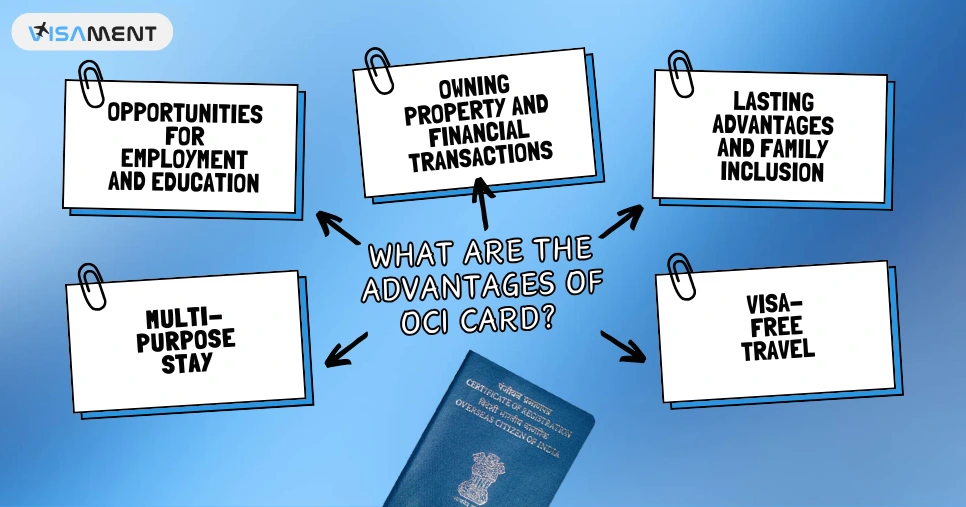
There are a lot of benefits of the Overseas Citizen of India card in the USA. OCI cardholders get a multiple-entry and lifelong visa to visit India. Let's know more about the advantages of the OCI Card:
1. Multi-Purpose Stay
OCI cardholders can visit India multiple times for any purpose. The cardholder can take part in various activities—from business ventures to spiritual journeys. They don't need extra documents or permissions to engage in such activities.
2. Opportunities for Employment and Education
The cardholder gets the right to seek employment in India. However, there are some restrictions in defense and research areas. OCI cardholders can also pursue education in India and get parity with Indian citizens in terms of fees and admission to educational institutions.
Travel to India as often as you like – no visa needed! Enjoy unlimited entries and seamless trips.
3. Owning Property and Financial Transactions
An OCI cardholder can purchase and own land/property in India except for agricultural properties. They can also carry out financial transactions just like an Indian citizen. This means they can open bank accounts, invest in securities, own property, inherit property, and transfer assets in India.
4. Lasting Advantages and Family Inclusion
An OCI card in the USA is not just for the individual but for their family too. The spouses and children of the OCI cardholder are also eligible for the OCI status benefit. This ensures that the cardholder's family can also avail of the advantages of an OCI card. An OCI card has benefits that last a lifetime and provides a sense of stability to the cardholders and their families.
5. Visa-Free Travel
One of the main benefits of OCI status is that a person can travel to India anytime without the need for a visa. OCI cardholders can visit and exit India multiple times and can stay there indefinitely without a visa. It simplifies the process of visiting India and makes travel stress-free. This is especially beneficial for those who have family in India or frequently travel between countries.
These are the benefits of being an Overseas Citizen of India. A person can avail of all these benefits after getting OCI status. However, along with all the benefits, there are some disadvantages of the OCI Card. Let's move forward with its limitations.
What Are the Disadvantages of an OCI Card?
While the OCI program grants many benefits to OCI cardholders, it has some limitations too, such as:
1. No Voting Rights
An OCI cardholder cannot cast votes in Indian elections or hold certain government positions. They are not allowed to take part in the democratic process, which is a right enjoyed by citizens of India.
Restricted Employment Opportunities
OCI cardholders are not permitted to seek certain professions in India. They cannot seek employment in defense, research, or other restricted areas without prior permission or specific work visas. Getting a job can be more challenging for an OCI cardholder compared to an Indian citizen.
3. No Access to Government Welfare Schemes and Subsidies
An OCI cardholder does not get access to government subsidies, welfare schemes, or any other benefits available to Indian citizens. They may also have to surrender their original citizenship to certain countries.
4. Restrictions on Properties and Visa-Free Travel
The cardholder cannot buy agricultural or plantation properties in India. Also, an OCI card does not provide the same benefits as an Indian passport. Some countries may restrict visa-free travel for OCI cardholders.
5. OCI Card Renewal
OCI cardholders need to renew their OCI card when they get a new passport at the age of 20 and again after they turn 50. Applying for renewal may involve complex paperwork and delays, which can be stressful.
It is vital to compare an OCI card to Indian citizenship to fully understand the limitations and benefits of an OCI card. Think about the pros and cons carefully to see if an OCI card matches your needs and goals.
Ask for Support
An OCI card provides several benefits that can enhance the quality of life for people of Indian origin who are living abroad. However, applying for an OCI card is a complex process that requires time and effort. Asking for support can save you time and get you an OCI card swiftly. Visament can assist you with the whole process of applying for an OCI card. We have a team of experts to solve every immigration-related problem. Be it help for lost or damaged OCI Card or applying for a visa. Contact us anytime and get satisfactory, high-quality service at a very budget-friendly price.
Frequently Asked Questions
Yes, an OCI card can be worth getting for a lot of reasons. Like, it acts as a lifelong visa with which they can visit and stay in India at any time. An OCI card also provides parity with NRIs in many fields like educational, economic, and financial.
Yes, applying for an OCI Card for Minors is allowed if both parents are citizens of India or if any one parent is a citizen of India. Several documents must be submitted to apply for an OCI card for a minor.
An OCI card is a lifelong visa which means it is valid for a lifetime. However, an OCI card needs to be renewed when the cardholder turns 20 and obtains a new passport and also after the age of 50.
Yes, an OCI card is generally considered better than a visa as an OCI card provides more freedom and flexibility for long-term stays in India. Also, an OCI card is valid for a lifetime while a visa is typically valid for up to six months.
